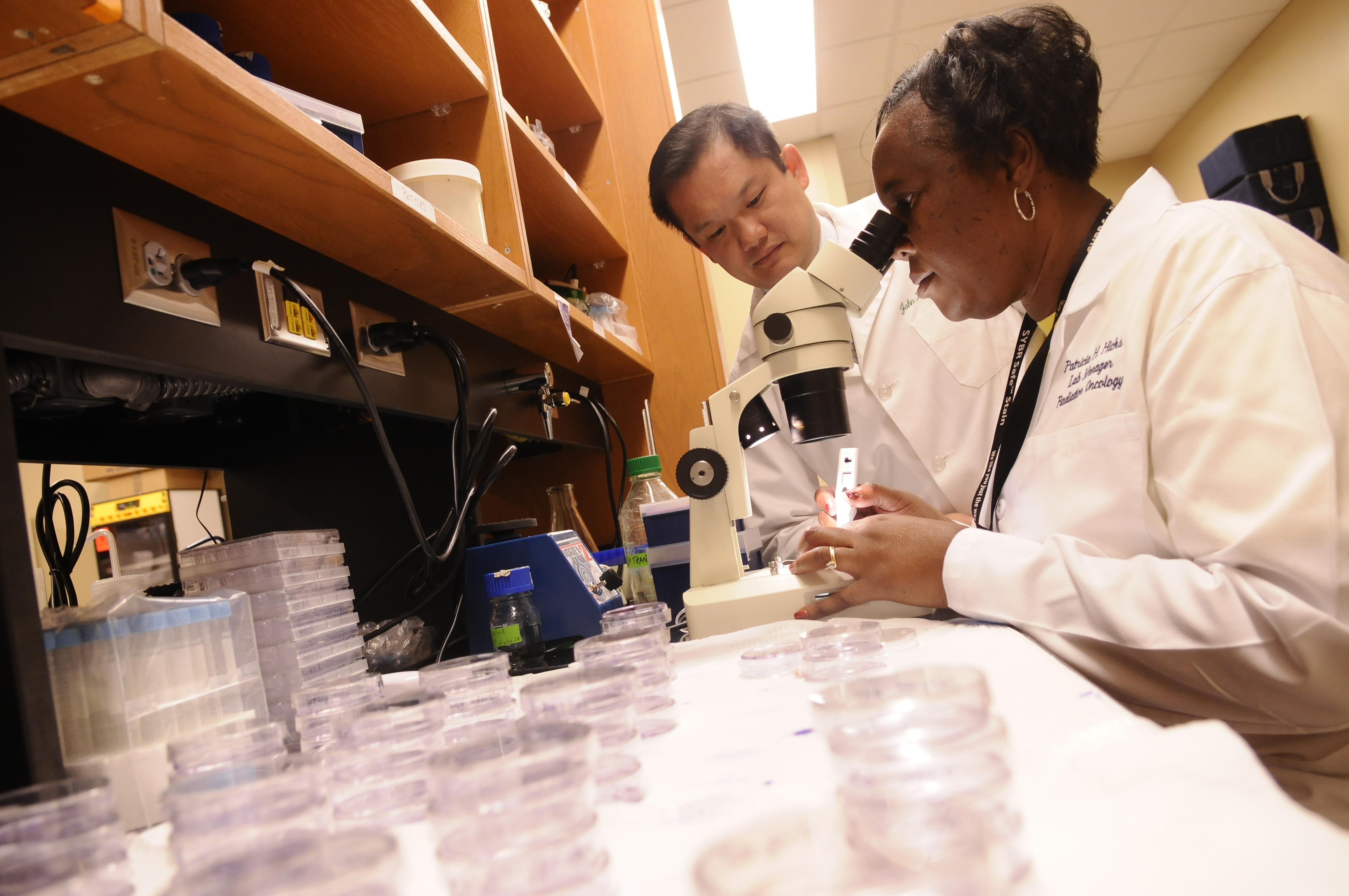UAB is a full-scale research university with “R1” designation by the Carnegie Foundation. This allows residents opportunities to collaborate with investigators from any number of backgrounds, including neuroscience, psychology, nutrition, cardiology, dermatology, to name a few.
Did you know?
- Since 1994, UAB has held “R1” status for “Very High Research Activity” by the Carnegie Classification of Institutions of Higher Education.
- UAB is a full-scale research university, hitting an institution record high of $774.5 milion in funding in fiscal year 2023.
- In 2008, UAB established the Center for Clinical and Translational Science (CCTS) to train young investigators and support research efforts across our institution. In 2024, CCTS received four NIH grants totaling $82 million over seven years.
- The UAB Center for Outcomes and Effectiveness Research and Education (COERE) is a university-wide interdisciplinary research center across more than 30 departments, supporting the growing field of outcomes research.
- The UAB Department of Radiation Oncology has an average of 20 clinical research protocols open for patient participation.
- UAB is a member of Varian's international FlashForward Consortium, studying high dose-rate radiation delivered at ultra-high speeds (<1 second).
The UAB Department of Radiation Oncology maintains a robust presence in cancer research. Our residents are strongly encouraged to participate in research projects tailored to their specific interests. The collaborative university atmosphere and diverse patient population at UAB provide residents with a wealth of resources to ask, investigate, and publish their innovative research ideas.
Our residents have written clinical trials and developed research projects that have yielded presentations, publications, and successful grant applications, allowing them to pursue careers in academic medicine at competitive universities across the country..
Residents receive travel funding to present their research at regional and national conferences, including the annual meeting of the American Society for Radiation Oncology, Society for Neuro-Oncology, American College of Radiation Oncology, among others.
Research Training
Our radiation oncology residency program is structured to train both clinical and laboratory-based researchers. We provide residents with dedicated research time during the third and/or fourth year of radiation oncology training to allow for more focused research investigations.
Clinical Trialist Pathway
Residents with an interest in clinical, translational, or outcomes-based research are supported to train on the UAB Clinical Trialist Pathway. This program is funded through a $26.9 million dollar NIH grant that established the Center for Clinical and Translational Science (CCTS) at UAB
The Clinical and Translational Science Training Program (CTSTP) is a six-month certificate program that provides training in clinical and translational research, including approximately 50 hours of didactic instruction as well as interactive experiences. Course content represents the following modules: Clinical Trials, Epidemiology, Biostatistics, Ethics, Clinical Genetics Research, Behavioral Research, Outcomes Research, Dissemination of Results, and Grant Writing and Funding Opportunities. This course is directed at oncology fellows in surgical and medical subspecialties, and residents in radiation oncology have also been invited to participate.
Learn more about the CTSTP curriculum here.
Holman Pathway
Residents with an interest in laboratory-based research and a career as a physician-scientist in radiation oncology are supported to apply to the American Board of Radiology (ABR) Holman Research Pathway. This program extends the length of dedicated research time, and abbreviates the clinical training for selected applicants. Our department chair, program directors, and resident’s application to the ABR will determine candidacy for this pathway in our program.
Learn more information about our physician-scientist research faculty.
More curriculum information may be found on the ACGME and ABR websites.
Resident Research
Residents are encouraged to develop and write clinical protocols during residency, applying knowledge gained from the CCTS at UAB. Recent resident-led clinical trials include:
-
- Safety and Efficacy of Prostate SBRT
- Dose Escalation for Hypofractionated Brain SBRT
- SRS for Essential Tremor and Parkinsonian Tremor
- Cardiac Radiosurgery for Arrhythmias
Our residents produce exciting research accepted for presentation at major national conferences, earning many esteemed awards and grant funding. Prior to presenting at the American Society for Radiation Oncology (ASTRO) conference, residents participate in our annual Research Retreat, and are given an opportunity to share their work before our department.
